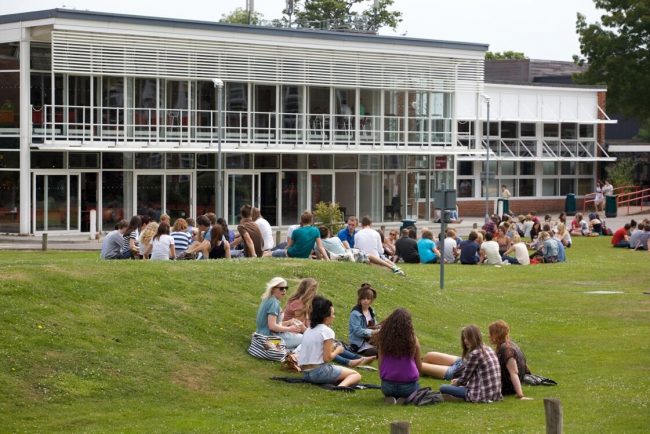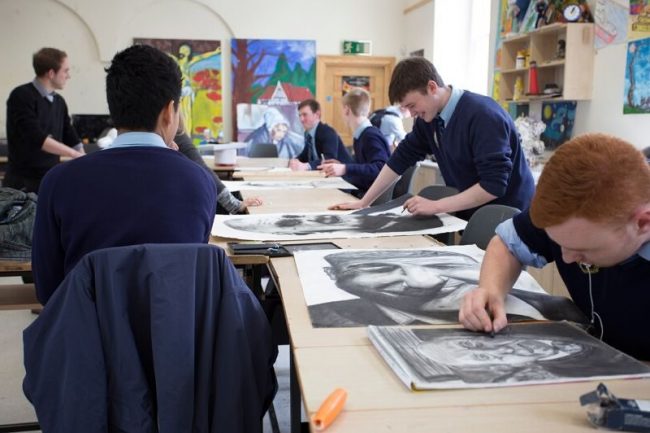info@hsinet.org
UK Address
61 Bridge Street, Kington, HR5 3DJ, United Kingdom +44 1273 711 606Ireland Address
Castleriver House, 14-15 Parliament Street, Dublin 2, Ireland +353 1 6784 800When deciding which school system suits you and considering study abroad destinations, it’s easy (and understandable!) to get carried away. Don’t be blinded by the romance of your favourite foreign country. Like the glittery celebrities, famous places or simply following in the footsteps your friends who have been before you.
For some students, selecting a study abroad destination on based any of these factors is a perfectly valid method. For for others however, these might not provide them with the best foundation for success. Deciding which school system suits you is very important. And if the academic side of a high school programme overseas is the most important factor for you, then keep reading.
In this article you’ll learn the differences between the British and Irish high school systems. Helping you to decide which school system suits your and your future ambitions.

A worldwide reputation for excellent education is a permanent feature of any ‘Global Top 10’ ranking for UK education.
It is often the #1 ranked native English-speaking country for education in the world.
There are several different post-16 education routes in the UK. However, the most common senior course of study in British schools are the ‘A Levels’. Here A Levels are a two-year course from the age of 16-18 which prepares students for entrance to University.

A key feature of the A Level programme is the number of subjects each student will take. Most students will study only 3 or 4 subjects, and they study these for the full 2-years. At the end of the course there will be exams in each of them.
You might think that only having to study such a small number of subjects sounds easy, but A Levels are not easy! You will generally have 5 – 6 hours per week of classes for each subject. Teachers will set self-directed study tasks for an additional 5 – 6 hours per week for each subject.
This intensive schedule means that students taking A Levels will cover a great deal of content in each of their chosen subjects. If you intend to study a related subject at University, then this will be excellent preparation for your Higher Education.
Now, here’s some good news for any of you who get mad at mathematics or simply hate history: on the A Level programme, no subjects are compulsory. That’s right, if you don’t like a subject, nobody will make you study it!
This means that the British system is particularly friendly to students who are not strong academically, but do have talents in other areas, such as sports, creativity or practical tasks. In the UK, these skills are valued just as highly as traditional academics.
It might be difficult to see at a glance how there could be any drawbacks to this, but bear in mind that you are selecting your A Level subjects at the age of just 15 or 16. The subjects you choose at A Level can have implications for what you may or may not be able to study at University, so this narrow but flexible system means that anyone taking A Levels must think carefully about their future plans, at a relatively young age.
The subject range on offer at each school in the UK will vary, and when you apply through HSI, we will help you to understand which subjects you might want to take at A Level and ensure that you apply to a school that offers the right combination of subjects.

| Students with clear career or future study plans | |
| Students who have a strong aversion to particular subjects | |
| Students who are creatively talented |
Ireland also boasts an education system that is regularly listed in the Global Top 10.
It’s also true that we speak the same language in Ireland as we do in the UK, but when it comes to the educational experience you can expect, that’s about where the similarities end!

One of the most unique features of Irish high school is Transition Year, which takes place when students are 15-16 years old.
Transition Year is not a compulsory year for international students who are looking to graduate from Irish high school, but it is by far our most popular year for study abroad programmes.
During Transition Year the pressure of academic study is reduced. There are no exams, and you will spend a lot of your time developing soft skills. This might include leadership skills, teambuilding, public speaking and personal budget management. You might also do some work experience (doing a real job!) and may have the opportunity to do some field trips during school time.
Transition Year can be a hugely valuable experience and if you have long-term plans to study in Ireland, it can give you time to settle into your new environment before the serious study programme starts the following year.
During the final two years of high school, from the age of 16 to 18, you will be working towards your ‘Leaving Certificate’ qualification, which is the Irish high school diploma.
The Leaving Certificate consists of 6 subjects, all studied for the full two years with exams in each subject at the end of the second year.
Maths and English are compulsory subjects for all students.
Some subjects are semi-compulsory: you will need to choose at least one science subject (Biology; Chemistry; Physics) and at least one humanities subject (History; Geography).
There are then two free-choice options, which allow you to tailor your programme to suit your strengths and interests.
One of the advantages of the Irish school system is that it ensures that you will get a well-rounded education until the age of 18.
Studying a larger number, and broader range, of subjects than you would in the UK, means that there is less importance on thinking far ahead to your future at such a young age.
Keep in mind though, that you will have to study certain subjects. However, your final grade is determined by the best 5 results of your 6 subjects, so don’t worry too much if one of your subjects is not your strongest!!



| General all-round good students | |
| Students who are undecided on their future study or career plans | |
| Students who like to study a broad variety of subjects |
One valuable piece of information that not everybody knows is that, within our two countries, the progression routes from the British and the Irish high school systems are exactly the same.
If you graduate from high school in Ireland, with your Leaving Certificate you can apply via UCAS to British universities. Likewise, once you have your A Levels from the UK, you can apply to Irish universities via the CAO.
To learn more about whether Ireland or the UK might be the right study destination for you, you can contact High Schools International for a free, no commitment consultation: info@hsinet.org
Find out more about the UK school system here and Irish school system here.